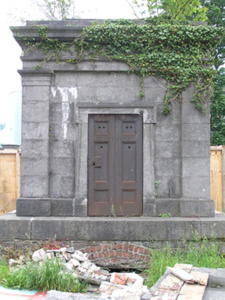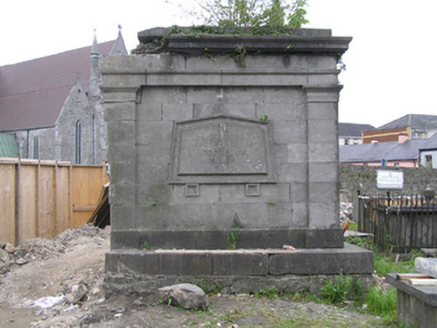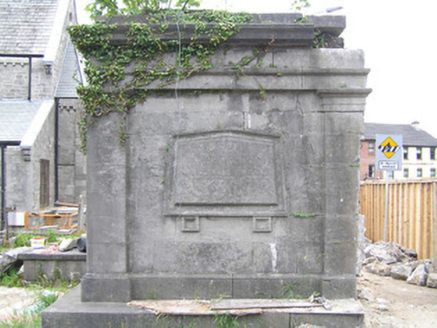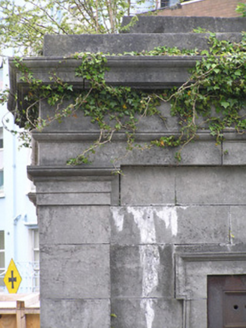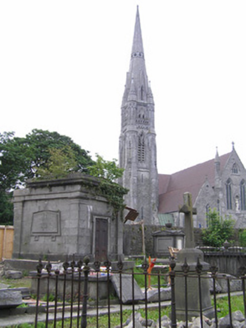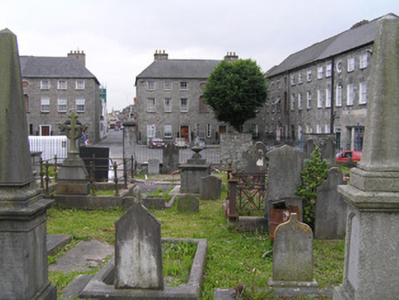Survey Data
Reg No
21513041
Rating
Regional
Categories of Special Interest
Architectural, Artistic, Historical, Social
Original Use
Mausoleum
In Use As
Mausoleum
Date
1840 - 1860
Coordinates
158240, 157033
Date Recorded
17/07/2005
Date Updated
--/--/--
Description
Attached limestone mausoleum on a raised limestone podium, built c. 1850, for the Unthank family, with an aedicular façade in the Doric order. Limestone ashlar walls with Doric pilasters supporting plain entablature and blocking course. Entablature returning along side elevations. The ashlar stonework facing has been recently removed from the street-facing east elevation. Square-headed door opening with Greek Revival limestone lugged architrave. Panelled cast-iron door leaf with vent holes to upper panels and cast-iron raised lettering: Unthank. Limestone plaque to south side elevation reads: 'I.H.S.The remains of Robert Unthank, Esq. are deposed in this monument. Who died May 1814, aged 26 years. Also the remains of his mother Mrs. Mary Unthank. Who died Sep. 22, 1847 aged 75 years. And his sister, Mrs. Percy Scanlan who died February 4th 1829, aged 37 years.' Limestone plaque to north side reads: 'IHS. To the memory of John Unthank, Esq. of Thomas-Street on this city who departed this life on the 19th February, 1849, aged 57 years. This monument is erected as a small testimony of the respect and affection of his sorrowing wife and childred.' Vault possibly located beneath podium. Located to the north of the church grounds flush with the boundary enclosing the site, abutting a two-storey structure.
Appraisal
This mausoleum, erected for the Unthank family, is located on the site of the eleventh-century Saint John's Church and was oriented to address the open north side of John's Square. This important historic site is adjacent to the former John's Gate and the town walls where the existing Citadel is located and incorporated within Saint John's Hospital. The present Saint John's Church replaced its medieval predecessor when the foundation stone was laid in 1851. This mausoleum adds significantly to the architectural and social history of the site. It is well-composed and the classical temple elevation contrasts with the Romanesque style of Saint John's Church.

